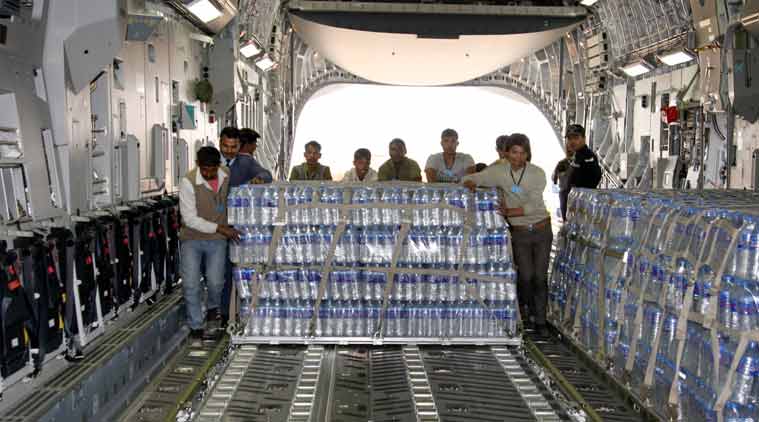The state of emergency has been declared in Male, the capital of the Maldives island chain, much of which has been deprived of drinking water since Dec. 5 when the city’s sole water and sewage treatment plant burned.
“I think the situation is more serious than the government admits” one resident, who requested anonymity, told local news agency Minivan News.
The Maldivian government announced Monday that there could have been no fall back plan for such a disaster.
Male is one of the most densely populated places in the world at a rate of 130,000 people in an area about two kilometers square. Faced with the shortage, people attacked shops selling mineral water, according to local media reports.
According to Maldivian Minister at the President’s Office Mohamed Hussain Shareef, Maldives 130,000 Male residents of Malé consume around 14,000 metric tonnes of water a day. The water treatment plant, when fully functional, was able to produce 20,000 tonnes, Shareef said.
The Maldives has appealed for aid from India, Sri Lanka, the US and China.
Indian authorities transported water in by air this Friday, and dispatched a Navy ship with two water purification systems on board, capable of producing 20 tons of drinking water per day.
Water was also provided by aircraft from neighboring Sri Lanka, according to the Ministry of Foreign Affairs of the Maldives, as reported by the news website Minivan News. An American ship is en route with drinking water, and China has promised to help, the ministry said.
A Chinese vessel is carrying 960 tonnes of fresh water is en route, according to the Chinese Defense Ministry. China’s Foreign Ministry has also stated that 20 tonnes of bottled water was sent on two civilian flights Saturday.
For their part, Maldivian authorities tried to revive the activity of the plant, but according to Minivan News, repairs could take up to five days.
“We had water on tap for about an hour this morning, and it is hardly enough,” added Minivan’s source. Water was distributed free to residents by security forces, but only those able to show a Maldives ID card could benefit, thus excluding foreign workers from Bangladesh, India, Nepal, Pakistan or Sri Lanka. This limitation was denounced local political activists.
By James Haleavy
